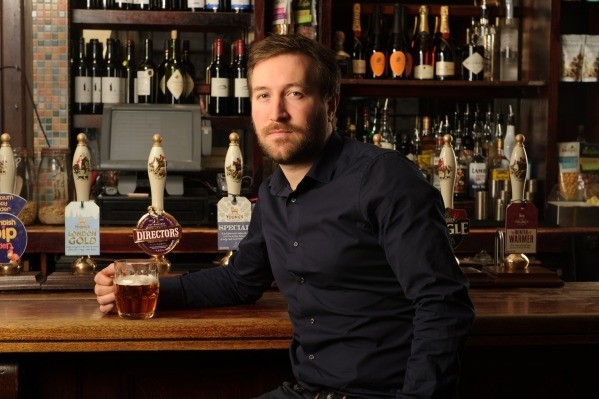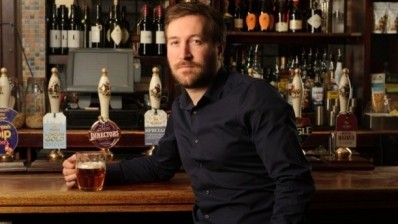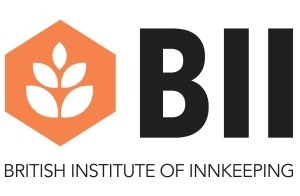News profile
Anthony Pender: Chairman, British Institute of Innkeeping

Anthony Pender is keen to avoid discussing politics but when I ask what his one wish would be for 2015 he can’t help himself. The new chairman of the British Institute of Innkeeping (BII) wants a complete overhaul of the way the Government provides
funding for training — and he is not pulling any punches.
“For the amount of people we employ as a sector, we’re vastly underfunded compared to other industries. That’s because we don’t get funding direct. It goes to quangos and non-government organisations like People 1st, the hospitality sector skills council, which then decides where the money goes,” he says.
“[Figures show] pubs employ 22% of people within the hospitality sector but only receive 13% of the funding. I’d say the majority goes to multi-national companies, which don’t pay corporation tax in the UK. And that really winds me up, because one thing pubs are is UK-registered, tax-paying companies. We may be fragmented but we’re big employers. And that means there’s a lot of small businesses that need supporting.”
His suggestion is for the Government to provide a rebate to pubs directly for the money they spend on training, to stop the trickle-down effect.
Pender — managing director of the five-strong Yummy Pub Company and vice-chairman of Perceptions Group, which sets out to raise the profile of pub careers — took on his new role at the BII in November.
10-year strategy
Two months in, he wants to set the record straight. The pub industry wants and needs the BII. The only drawback is people don’t know what it does.
“When I got appointed chairman, I was really chuffed to personally receive more than 100 emails saying: ‘Brilliant news. We really want to see the BII work. We really feel we need it’. But people don’t know what it should be doing. That’s where we have to focus now,” he says.
He has a big challenge on his hands. While chief executive Tim Hulme will focus on delivering a three-year strategy, Pender is looking 10 years ahead in order to protect the long-term viability of the organisation. He will help achieve a complete overhaul of the body — to prevent it from becoming, as Hulme previously warned, “complacent and elitist” — and aims to increase membership from 9,000 to 19,000 by 2018.
The key message he wants to get across is that the BII is “an institute for learning and research”, and not getting “carried away” by wading into issues such as the beer tie debate.
Labour deficit
For Pender, the industry’s main challenge is a skills shortage. According to People 1st, there are currently 1.9m people employed in the pub industry and by 2020 this number must rise by 500,000.
“That’s a big number. And if we can’t find that amount of workers then we’re not going to grow as an industry,” he says. “I’ve got so many peers who can’t find good chefs, can’t find good managers and struggle to find good bar staff who want to progress to a career.”
It is this struggle that encouraged the BII to team up with the British Beer & Pub Association and Perceptions Group to introduce a new pub chef recruitment campaign, which will launch next month to attract and train young chefs within the sector.
Pender also hopes the BII’s new tiered membership structure — which includes different memberships for students, new licensees and established licensees — will encourage young people to progress through the industry.
“You might start on minimum wage — I don’t see anything wrong with that, I did.
“But if you work hard and progress, there’s the option to move into a high-paid job very quickly. I’ve got a 24-year-old manager at a site taking £2m and earning way more than a lot of post-grads are earning after three years’ work,” he says.
New structure
He admits that the BII’s regional chairmen have lacked direction and said the body is working towards a clearer structure, with the potential to create hubs, so each area can work with the best local universities and colleges for hospitality.
“I’d like to see much more training for the good of the consumer coming into our premises in the form of best practice,” he tells me. “We should avoid legislation by moving ahead [of the Government]. A massive concern is that in Australia and America, every member of staff has to have a licence in order to sell alcohol. We don’t want to move down that route in the UK.”
And to help achieve best practice across the board, Pender wants more senior figures in the industry to pass on their knowledge, through the BII’s mentor scheme and its new roadshows, which began last week in Exeter.
“If you’ve got the CEO of a large, successful company willing to do a three-hour workshop for licensees specialising on customer service or cash flow, how amazing would that be?
“We need to find future stars. We need future leaders. At the moment, they’re working behind the bar.”







